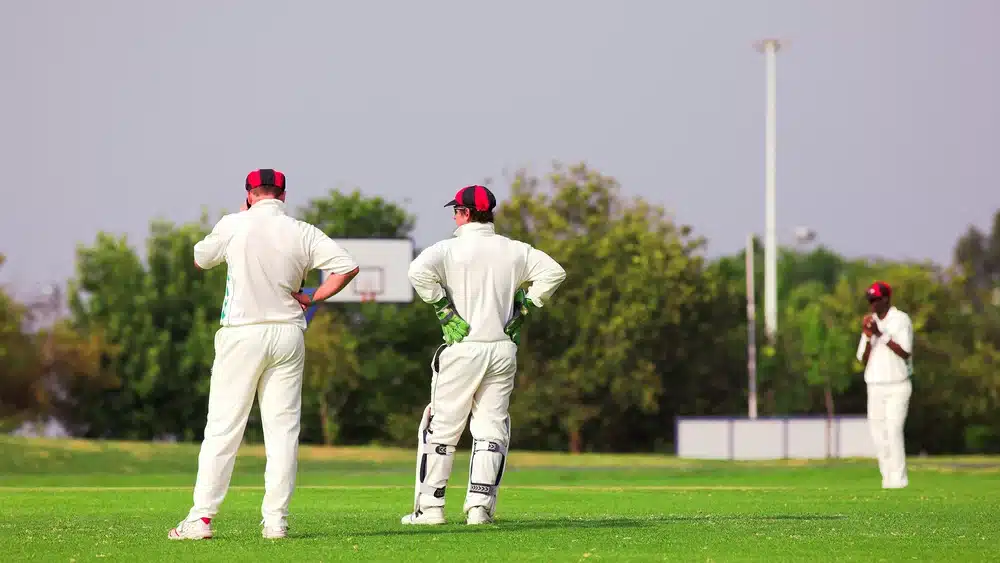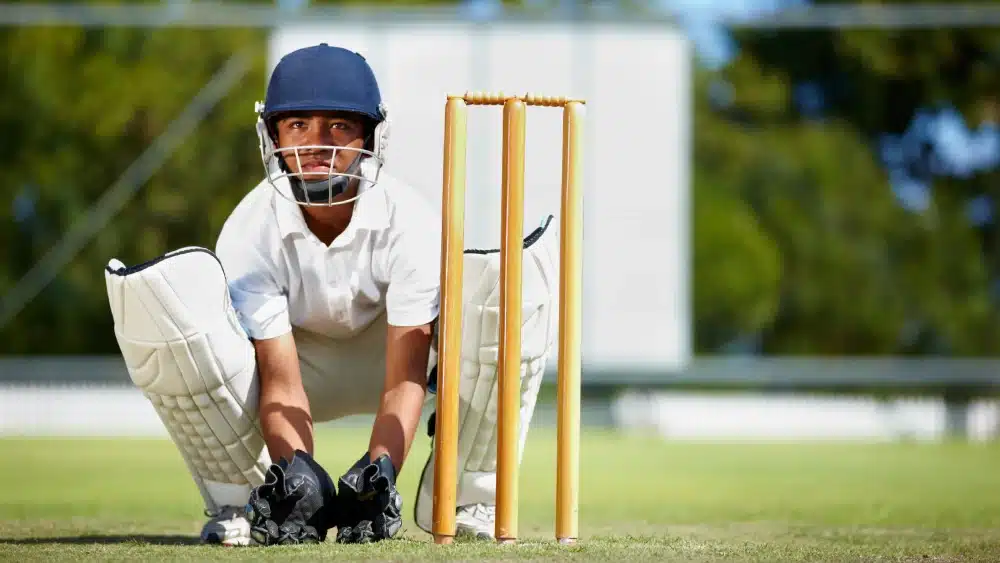
For decades, results of Indian cricket team matches have had a massive impact on the audience of the cricket-crazy nation.
Since their first-ever Test match win against Pakistan in 1952, the Men in Blue have pulled off some magnificent wins, both in their backyard and overseas, sometimes as underdogs while at other times, from the jaws of defeat.
Here are some of the Indian cricket team matches that united and uplifted the entire nation.
1983 World Cup Final: An odds-defying miracle
The Indian cricket team’s unlikely win at the 1983 World Cup perhaps spurred the passion for the sport to a whole new level. The solitary event had positioned the nation to start believing in themselves.
After India had failed to go past the first round of the 1975 and 1979 World Cups, the Kapil Dev-led Indian team had entered the 1983 World Cup with the odds of 66/1 to win the competition. The squad wasn’t quite balanced eother, focussing more on youth and less on experience.
India’s 1983 World Cup campaign inspired countless budding players to excel in cricket. Among them @sachin_rt, @SGanguly99, Rahul Dravid & @VVSLaxman281. Shows the deep impact this victory had on Indian cricket
— Cricketwallah (@cricketwallah) June 25, 2020
However, Kapil’s Devils had silenced the critics early on with a 34-run win over defending champions West Indies in their opening match. This was India’s first win against Sir Clive Lloyd’s Men in Maroon. India would then go on to beat Zimbabwe (after being 78-6 at one stage), Australia and England -- the latter two finalists in the preceding two World Cups -- to book a place in the final.
India would face West Indies in the final yet again, and this time they were to steamroll the opposition. However, what no one saw coming was Madan Lal and Mohinder Amarnath's ambitious bowling that had silenced the 24,609 attendees at the Lord’s Cricket Ground. India went on to lift the World Cup trophy and completed their odds-defying miracle at the ‘home of cricket’.
1985 World Championship of Cricket semi-final: From underdogs to overachievers
The 1985 World Championship of Cricket stands out as one of the most glorious campaigns in Indian cricket’s history, as they had gone unbeaten in the entire competition despite starting as underdogs.
Following their miraculous success at the 1983 World Cup, the Indian team had lost successive tours on home soil to West Indies (1983) and England (1984/85). While a defeat to the West Indies were expected, going down against an inexperienced English side had seen their chances at the World Championship of Cricket plummet.
However, Sunil Gavaskar, in his last assignment as the Indian cricket team captain, withstood the test of time to put out confident performances against hosts Australia, New Zealand, England and eventual finalists Pakistan. After Mohammad Azharuddin’s unbeaten 93 against Pakistan had kicked off India’s campaign on a high, he found support in Krishnamachari Srikkanth, who registered the joint-highest individual score in the competition (93*) against Australia and would later finish the tournament as the leading run-getter with 238 runs.
One of the Greatest Victory of the Indian Cricket Team, the World Championship of Cricket Trophy in Australia, 1985. Here the Team Parading on the Wheels in Melbourne. So proud to be sharing the Cup with the Sunny Bhai who was leading India in World Cricket Championship. pic.twitter.com/auhEP0bdV7
— Chetan Sharma (@chetans1987) August 5, 2020
While India’s victory over Pakistan in the final put them on a pedestal, it was their semi-final win against New Zealand that had instilled belief in Indian fans back at home.
Batting first, New Zealand rode high on John Reid’s influential knock of 55 before Madan Lal’s tournament-defying spell of 4/37 had limited the Black Caps to a competitive total of 206. India batsmen’s slow start to the chase needed a catalyst to reignite their intent and they found that in Kapil Dev, who smashed an unbeaten 54 off just 37 balls to win the match with six overs to spare.
Ravi Shastri had returned home with the Man of the Series award for his 182 runs and eight wickets. His three-wicket haul in the semi-finals against New Zealand is fondly remembered even today.
India vs Australia Test, 2001, Kolkata: The indomitable VVS Laxman
The odds were in complete favour of Australia ahead of the second Test match of the 2001 Border-Gavaskar Trophy. Steve Waugh’s men were in supreme form with an 18-match unbeaten run and had just registered an emphatic 10-wicket victory over India in the first Test match in Mumbai.
Australia started strongly at the Eden Gardens piling up a first innings score of 445 before hosts India were bowled out for 172 runs to concede a follow-on. The Kangaroos were on the verge of sealing the series and India needed a miracle.
And they found it on day four of the historic Test match. After the third day ended with India at 232/4 with 42 more runs needed to make Australia bat again, the crowd at Eden witnessed VVS Laxman and Rahul Dravid stitching up an extraordinary 376-run partnership for the fifth wicket.
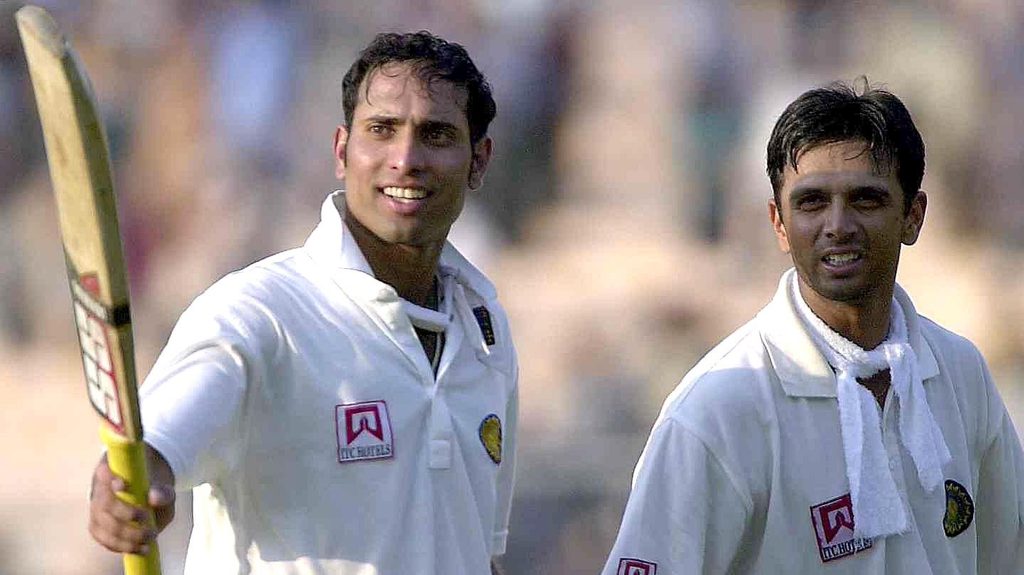
VVS Laxman made a mammoth 281 as India declared at 657/7. Australia failed to chase down the target of 384 as they were bowled out for 212 with Harbhajan Singh claiming 13 wickets at the end of the Test.
Not only had India ended Australia’s 16-game winning streak but Steve Waugh had become just the third captain in Test history to lose a match after enforcing a follow-on.
2007 T20 World Cup final: Start of the Dhoni era
India’s humiliating exit from the group stages of the 2007 Cricket World Cup was the nadir of Indian cricket and called for an immediate change in personnel. With the 2007 T20I World Cup coming up, the trio of Sachin Tendulkar, Rahul Dravid and Sourav Ganguly had opted for young talent to lead the team in the new format. MS Dhoni was made captain of the T20I team.
The changes paid off. India lifted their first piece of ICC silverware in limited-overs cricket in 24 years.
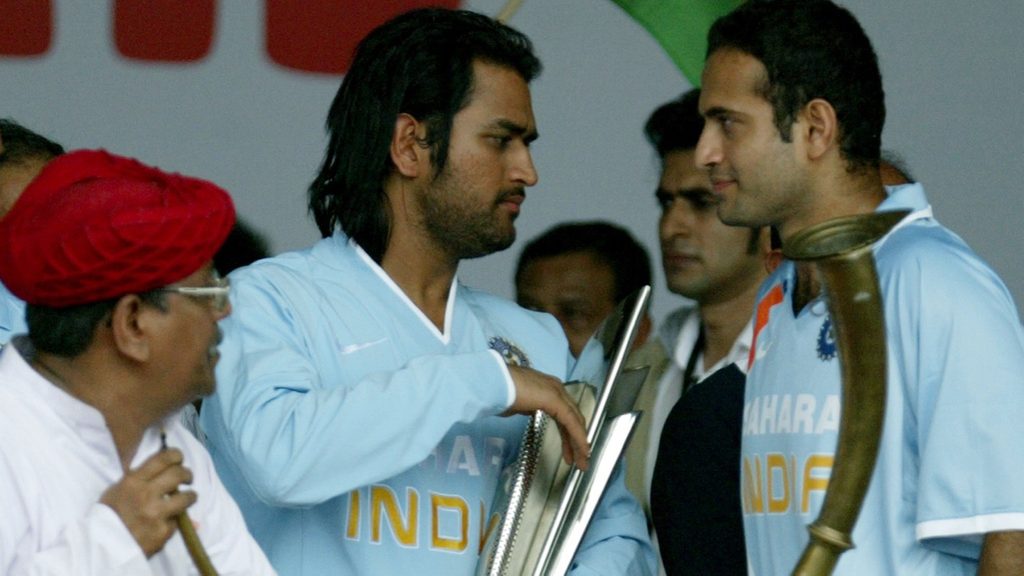
Following the Indian cricket team’s 2007 World Cup exit, no one had expected them to reach the knockout stages of the T20I World Cup. However, from Yuvraj Singh’s six sixes in a row against England to RP Singh’s 4/13 against hosts South Africa, India produced some brilliant individual performances in the 2007 T20I World Cup.
The memory of an unassuming Joginder Sharma bowling the tense final over to Misbah-ul-Haq, who would eventually gift his wicket to S. Sreesanth with a miscued shot had started MS Dhoni’s era. The tournament win was also a realization that it was time for the old guard to give way for the new ones.
2011 Cricket World Cup Final: Dhoni finishes off in style
The fact that most 2007 T20 World Cup-playing Indian players were still around in the 2011 edition meant MS Dhoni was pulling the team in the right direction. And with the tournament being held in India’s backyard, the hosts could not have gotten a better chance of winning the tournament.
Withstanding that pressure was never going to be easy and when MS Dhoni had hit that six at the Wankhede Stadium to help India win the coveted World Cup trophy after a gap of 28 years, it was the fulfilment of a dream every Indian was carrying forever.
Though not announced, many had assumed that that the 2011 edition would be the last World Cup for Sachin Tendulkar and emotions were high when the Master Blaster was carried on the shoulders of his team-mates during the victory lap. It was the only tribute befitting the legend, which made it one of the most cherished Indian cricket team matches.
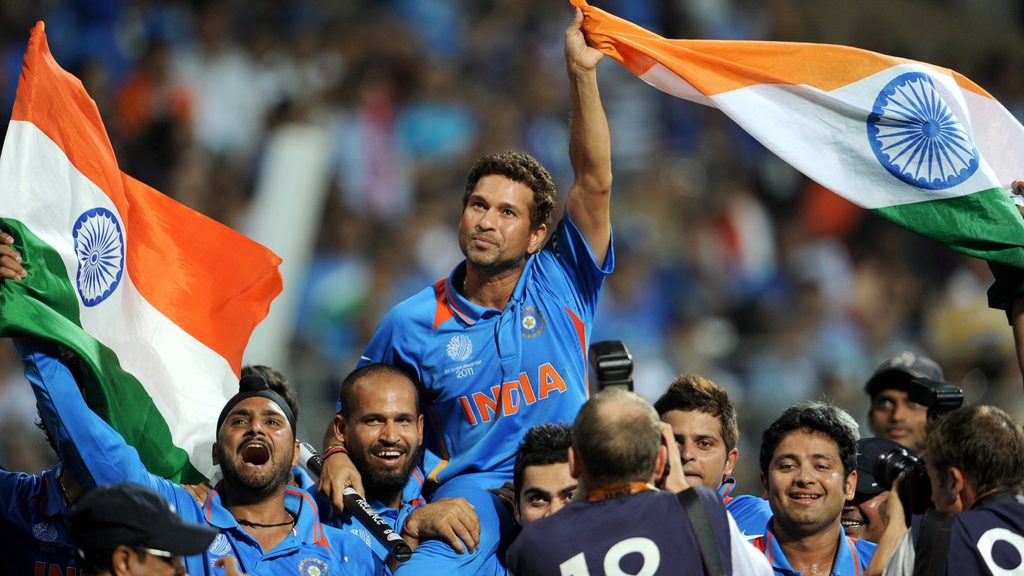
India had lost just one fixture, against South Africa in the group stage, in the entirety of their campaign. Each knockout victory, the quarter-finals against Australia and the semi-final against Pakistan, was a perfect build-up to the final against Sri Lanka as India had reached the summit clash after eight years.
After Sri Lanka had posted a chaseable target of 275, India were supposed to reach it easily before early wickets of Sachin Tendulkar and Virender Sehwag had changed everything. Eventually, Gautam Gambhir and MS Dhoni’s 109-run partnership would steady the ship before Yuvraj Singh helped his captain finish “off in style.”
Other notable Indian cricket team matches include Sachin Tendulkar’s Desert Storm against Australia and India’s eventual win in the 1998 Coca-Cola Trophy and India’s triumph over England in the 2002 NatWest Trophy final. These were games that wrote history for India.












